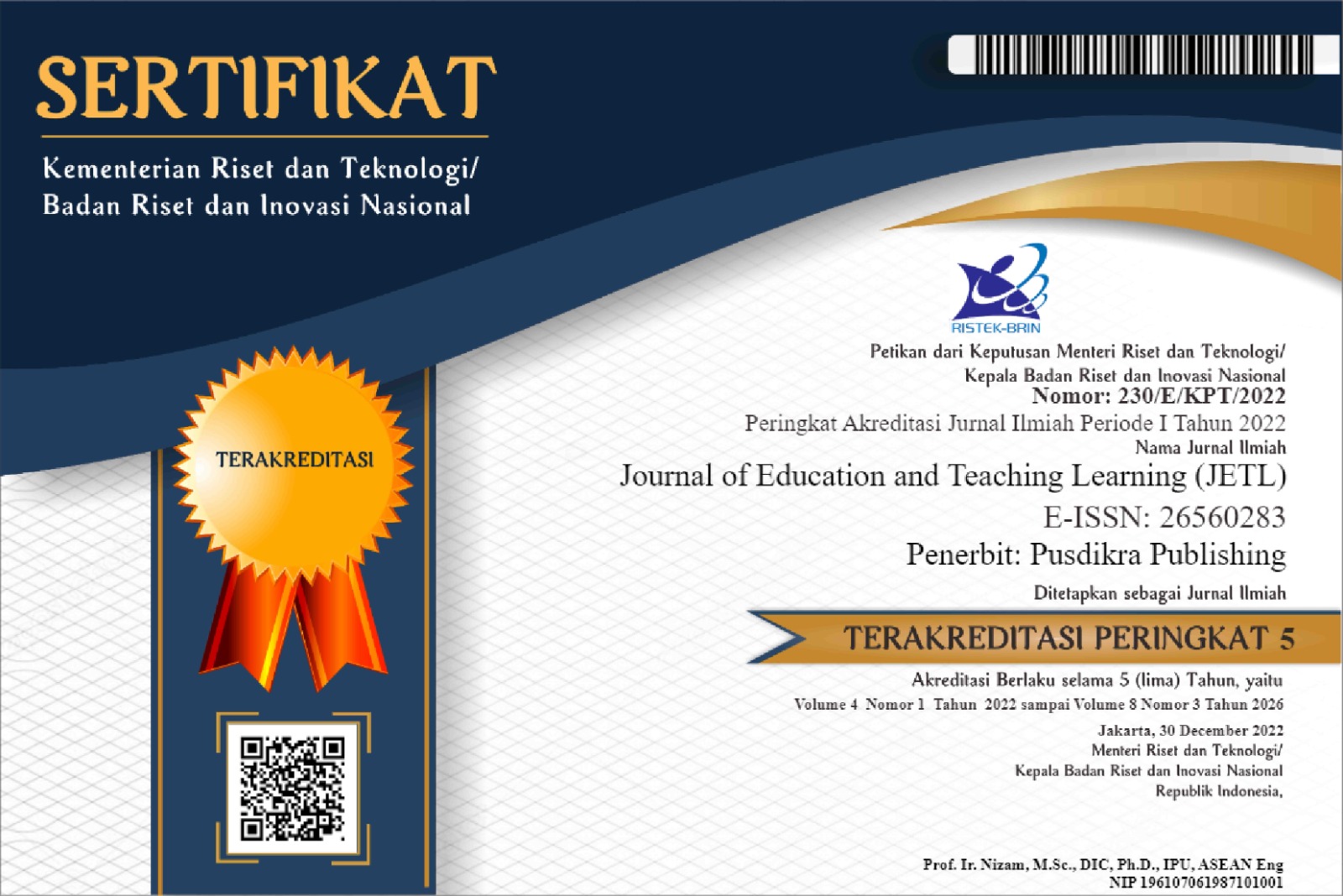Experiences Of Student-Teachers During Teaching Practice : A Critical Analysis And Suggestions As To How They Could Be Better Prepared
DOI:
https://doi.org/10.51178/jetl.v4i2.730Kata Kunci:
Experiences, Teaching practice, Learning Environment, Student-TeacherAbstrak
This article explores the experiences of Post Graduate Certificate in Education (PGCE) Life Orientation (LO) student-teachers in Contact (face-to-face) Institution during teaching practice in Gauteng schools. Teaching practice is an integral component of teacher training. It is, however, not certain what the student-teacher’s experiences in the teaching and learning environment are. This study is concerned with the question: What are the experiences of student-teachers during teaching practice? Qualitative research was used as the mode of inquiry since this study is concerned with the lived experiences of student-teachers. Furthermore, the theoretical framework underpinning this study is experiential learning and reflective learning theory. PGCE (LO) student-teachers were purposefully selected. These student-teachers were identified as at-risk students. Furthermore, during student assessment, I observed that they were not performing well in their teaching practice. Semi-structured interviews were conducted with seven (7) LO student-teachers and a reflective journal, student-teachers’ reports as a tool for document analysis was used to provide contextual details. Thematic analysis was used to identify themes and analyse the data. Findings revealed that student-teachers were not adequately prepared for the actual teaching and learning environment at some schools. Furthermore, in some schools there was no support from the mentor teachers and other key role players involved in student support during teaching practice.
Unduhan
Diterbitkan
Cara Mengutip
Terbitan
Bagian
Lisensi
Hak Cipta (c) 2022 Authors and Journal of Education and Teaching Learning (JETL)

Artikel ini berlisensiCreative Commons Attribution-ShareAlike 4.0 International License.




